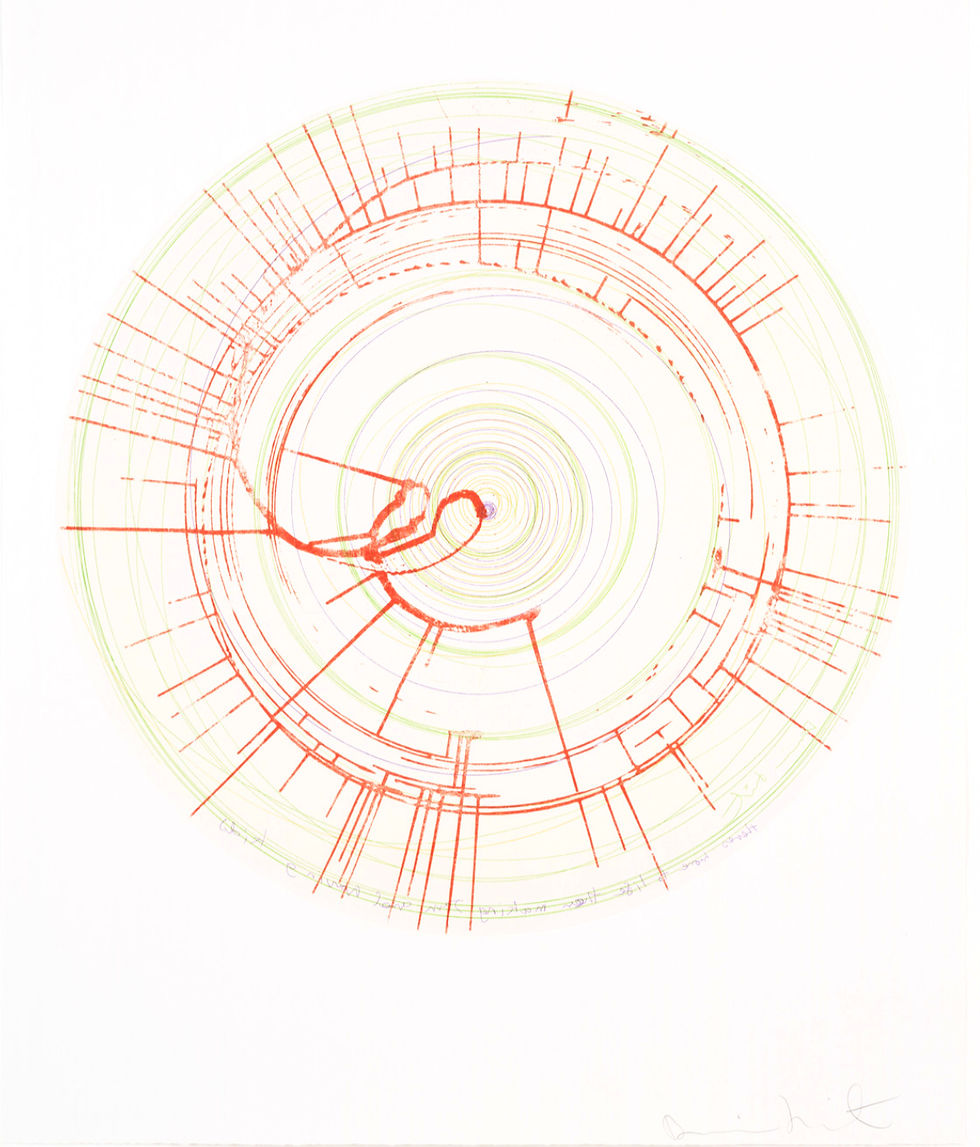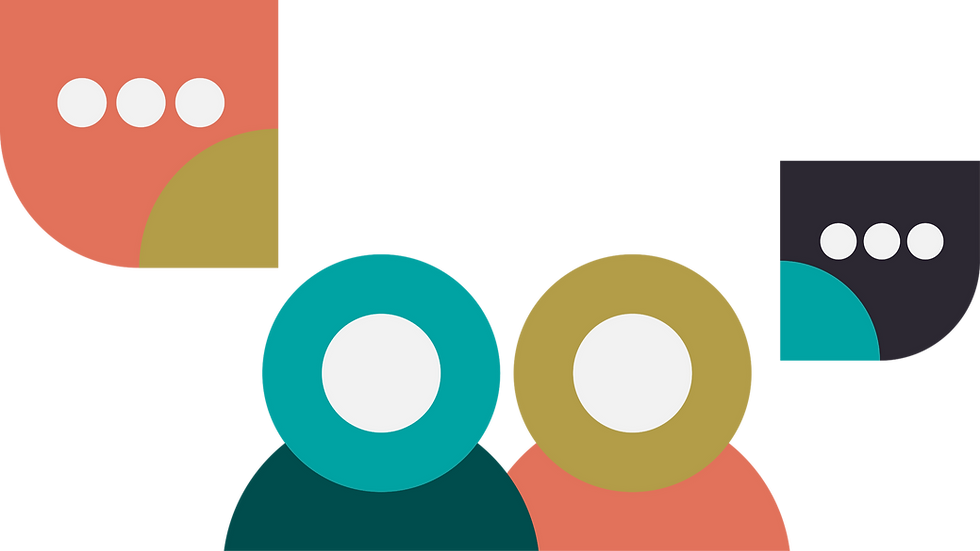What is a Good Life?
This may be humanity's oldest question, yet each generation seems to discover it anew. We inherit ideas about success, happiness, and fulfillment from our families and cultures, but eventually must decide for ourselves what makes life worth living. The challenge is that the obvious answers often disappoint us: wealth doesn't guarantee happiness, achievements can feel hollow, and pleasures fade quickly.
Perhaps the difficulty lies not in finding the right answer but in asking the right questions. What does it mean to live well when suffering is inevitable, when time is limited, and when so much remains outside our control? How do we distinguish between what we think should make us happy and what actually does?
Our conversation will explore:
What does it mean to live well rather than just feel good?
How do we find meaning in ordinary moments?
What role do relationships play in a good life?

What is a Good Life?

This may be humanity's oldest question, yet each generation seems to discover it anew. We inherit ideas about success, happiness, and fulfillment from our families and cultures, but eventually must decide for ourselves what makes life worth living. The challenge is that the obvious answers often disappoint us: wealth doesn't guarantee happiness, achievements can feel hollow, and pleasures fade quickly.
Perhaps the difficulty lies not in finding the right answer but in asking the right questions. What does it mean to live well when suffering is inevitable, when time is limited, and when so much remains outside our control? How do we distinguish between what we think should make us happy and what actually does?
Our conversation will explore:
What does it mean to live well rather than just feel good?
How do we find meaning in ordinary moments?
What role do relationships play in a good life?

This may be humanity's oldest question, yet each generation seems to discover it anew. We inherit ideas about success, happiness, and fulfillment from our families and cultures, but eventually must decide for ourselves what makes life worth living. The challenge is that the obvious answers often disappoint us: wealth doesn't guarantee happiness, achievements can feel hollow, and pleasures fade quickly.
Perhaps the difficulty lies not in finding the right answer but in asking the right questions. What does it mean to live well when suffering is inevitable, when time is limited, and when so much remains outside our control? How do we distinguish between what we think should make us happy and what actually does?
Our conversation will explore:
What does it mean to live well rather than just feel good?
How do we find meaning in ordinary moments?
What role do relationships play in a good life?
Conversation Catalysts
At Premise, a Conversation Catalyst is a short story, essay, film, or poem that sparks reflection and connection. It’s the shared reference point that grounds each session and opens the door to meaningful and deep conversation.

"This Is Water" by David Foster Wallace
The Good Life by Robert Waldinger and Marc Schulz (selected chapters)
Preparation: < 1.5 hours
%20copy_edited.png)
This session explores how conscious attention and meaningful connection can transform our understanding of happiness from fleeting pleasure to enduring fulfillment.
"This Is Water" by David Foster Wallace
Wallace argues that our "default setting"—the unconscious, self-centered way our minds naturally operate—keeps us trapped in automatic reactions of frustration and resentment. He proposes that true education means learning to choose what we pay attention to and how we construct meaning from experience. The good life requires the daily discipline of staying conscious and compassionate in mundane moments, recognizing that "the really important kind of freedom involves attention and awareness and discipline."
_edited.png)
"This Is Water" by David Foster Wallace
The Good Life by Robert Waldinger and Marc Schulz (selected chapters)
Preparation: < 1.5 hours
This session explores how conscious attention and meaningful connection can transform our understanding of happiness from fleeting pleasure to enduring fulfillment.
"This Is Water" by David Foster Wallace
Wallace argues that our "default setting"—the unconscious, self-centered way our minds naturally operate—keeps us trapped in automatic reactions of frustration and resentment. He proposes that true education means learning to choose what we pay attention to and how we construct meaning from experience. The good life requires the daily discipline of staying conscious and compassionate in mundane moments, recognizing that "the really important kind of freedom involves attention and awareness and discipline."
Conversation Catalysts
At Premise, a Conversation Catalyst is a short story, essay, film, or poem that sparks reflection and connection. It’s the shared reference point that grounds each session and opens the door to meaningful and deep conversation.
"This Is Water" by David Foster Wallace
The Good Life by Robert Waldinger and Marc Schulz (selected chapters)

Text Set A
Preparation: < 1.5 hours
Session Description
This session explores how conscious attention and meaningful connection can transform our understanding of happiness from fleeting pleasure to enduring fulfillment.
"This Is Water" by David Foster Wallace
Wallace argues that our "default setting"—the unconscious, self-centered way our minds naturally operate—keeps us trapped in automatic reactions of frustration and resentment. He proposes that true education means learning to choose what we pay attention to and how we construct meaning from experience. The good life requires the daily discipline of staying conscious and compassionate in mundane moments, recognizing that "the really important kind of freedom involves attention and awareness and discipline."
"The Good Life" by Robert Waldinger and Marc Schulz (Chapters 1-3)
Waldinger and Schulz provide scientific validation for this wisdom through the Harvard Study of Adult Development, the longest-running study of human happiness. Their 84 years of data reveal that relationships—not achievement, wealth, or status—are the strongest predictor of a good life. They demonstrate that connection literally keeps us healthier and happier, while emphasizing that relationships require ongoing cultivation, or "social fitness," rather than passive hope.
Together, these works challenge us to examine our assumptions about success and happiness with both philosophical depth and scientific rigor. They ask: What happens when we stop operating on autopilot and start choosing our responses consciously? How does shifting our attention from our own comfort to others' humanity change our daily experience? What would change if we invested in relationships with the same discipline we bring to career advancement or physical fitness?
Text Set A
Preparation: < 1.5 hours
Session Description
This session explores how conscious attention and meaningful connection can transform our understanding of happiness from fleeting pleasure to enduring fulfillment.
"This Is Water" by David Foster Wallace
Wallace argues that our "default setting"—the unconscious, self-centered way our minds naturally operate—keeps us trapped in automatic reactions of frustration and resentment. He proposes that true education means learning to choose what we pay attention to and how we construct meaning from experience. The good life requires the daily discipline of staying conscious and compassionate in mundane moments, recognizing that "the really important kind of freedom involves attention and awareness and discipline."
"The Good Life" by Robert Waldinger and Marc Schulz (Chapters 1-3)
Waldinger and Schulz provide scientific validation for this wisdom through the Harvard Study of Adult Development, the longest-running study of human happiness. Their 84 years of data reveal that relationships—not achievement, wealth, or status—are the strongest predictor of a good life. They demonstrate that connection literally keeps us healthier and happier, while emphasizing that relationships require ongoing cultivation, or "social fitness," rather than passive hope.
Together, these works challenge us to examine our assumptions about success and happiness with both philosophical depth and scientific rigor. They ask: What happens when we stop operating on autopilot and start choosing our responses consciously? How does shifting our attention from our own comfort to others' humanity change our daily experience? What would change if we invested in relationships with the same discipline we bring to career advancement or physical fitness?
Conversation Catalysts
At Premise, a Conversation Catalyst is a short story, essay, film, or poem that sparks reflection and connection. It’s the shared reference point that grounds each session and opens the door to meaningful and deep conversation.
More conversation catalysts coming soon!

Text Set B
Preparation: < 1.5 hours
Session Description
At Premise, we’re always growing. Our sessions are shaped not only by the enduring questions we ask but also by the ideas and contributions of our participants and Chapter Leaders. We are a constructivist learning community, which means we build our learning experiences together.
More text sets for this question are on the way. Each one will follow our approach: short enough to prepare in under three hours, substantial and thought-provoking enough to spark deep discussion, and accessible to a wide audience.
In the meantime, we’d love to hear from you. If you have a suggestion for a story, essay, film, or poem that belongs here, please share it in the section below.
Text Set A
Preparation: < 1.5 hours
Session Description
This session explores how conscious attention and meaningful connection can transform our understanding of happiness from fleeting pleasure to enduring fulfillment.
"This Is Water" by David Foster Wallace
Wallace argues that our "default setting"—the unconscious, self-centered way our minds naturally operate—keeps us trapped in automatic reactions of frustration and resentment. He proposes that true education means learning to choose what we pay attention to and how we construct meaning from experience. The good life requires the daily discipline of staying conscious and compassionate in mundane moments, recognizing that "the really important kind of freedom involves attention and awareness and discipline."
"The Good Life" by Robert Waldinger and Marc Schulz (Chapters 1-3)
Waldinger and Schulz provide scientific validation for this wisdom through the Harvard Study of Adult Development, the longest-running study of human happiness. Their 84 years of data reveal that relationships—not achievement, wealth, or status—are the strongest predictor of a good life. They demonstrate that connection literally keeps us healthier and happier, while emphasizing that relationships require ongoing cultivation, or "social fitness," rather than passive hope.
Together, these works challenge us to examine our assumptions about success and happiness with both philosophical depth and scientific rigor. They ask: What happens when we stop operating on autopilot and start choosing our responses consciously? How does shifting our attention from our own comfort to others' humanity change our daily experience? What would change if we invested in relationships with the same discipline we bring to career advancement or physical fitness?
